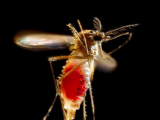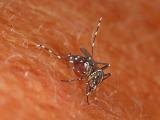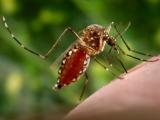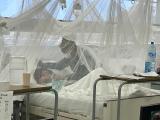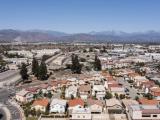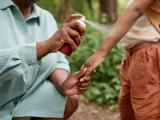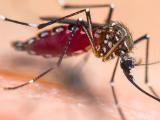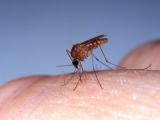The World Health Organization's (WHO's) strategic group of experts on immunization (SAGE) announced today that Dengvaxia, the controversial dengue vaccine, should not be used until clinicians can confirm prior dengue infection at the time of administration.
A point-of-care test would determine the recipient's dengue status, and only those who have previously had the virus would get vaccinated.
Such a test is at least 2 years down the pipeline, SAGE advisors said during a media telebriefing, which means confusion and chaos for countries that have purchased large amounts of the vaccine, and a huge loss for Sanofi Pasteur, the manufacturer of Dengvaxia.
"We now have clear information that the vaccine needs to be dealt with in a clearer way, by using it exclusively or almost exclusively in people who have already been infected with dengue," said Alejandro Cravioto, MD, SAGE's chair.
Needed: proof of prior infection
The announcement cements an interim ruling made last December, which said the WHO only supported vaccination in people with proof of prior infection.
SAGE advisors said the possibility of this recommendation dated back to 2016, when Sanofi provided data to the WHO that showed that in dengue-naive patients (mostly children) the vaccine can act as a primary infection, leading to subsequently more severe infections. At that time, the recommendation was to administer the vaccine to anyone ages 9 or older, based on the likelihood that children in endemic countries would have encountered dengue before their ninth birthday.
Previous exposure to dengue is not protective, but can enhance subsequent infections, a phenomenon known as antibody dependent enhancement (ADE). Experts such as Scott Halstead, MD, have said that the data on Dengvaxia clearly showed the vaccine was causing ADE in dengue-naive recipients. More than 2 years ago, he suggested the vaccine not be used in children or dengue-naive people.
Sanofi denied those claims, but also recommended last December that the vaccine only be used in people with prior infections.
At that time, Halstead told CIDRAP News, "I am surprised that it did get this far, and that the World Health Organization [WHO] ushered the vaccine in."
Public health use of the vaccine still valuable
Cravioto said SAGE still defends the public health use of Dengvaxia in people with known dengue serostatus, and he said that SAGE's decision has been a long time coming—not simply a reaction to the political turmoil that's taken over the Philippines in recent months.
The Philippines was one of the first countries to begin a national dengue immunization program as soon as the vaccine was approved for use, and authorities there have since examined the deaths of several school children to determine if their severe dengue infections were the result of vaccine use.
"We are in close contact with the authorities in the Philippines," Cravioto said. "We are monitoring the situation."
See also:
Dec 1, 2017, CIDRAP News Story "Sanofi restricts dengue vaccine but downplays antibody enhancement"
Dec 14, 2017, CIDRAP News Story "Philippines, scientists grapple with Dengvaxia fallout"


